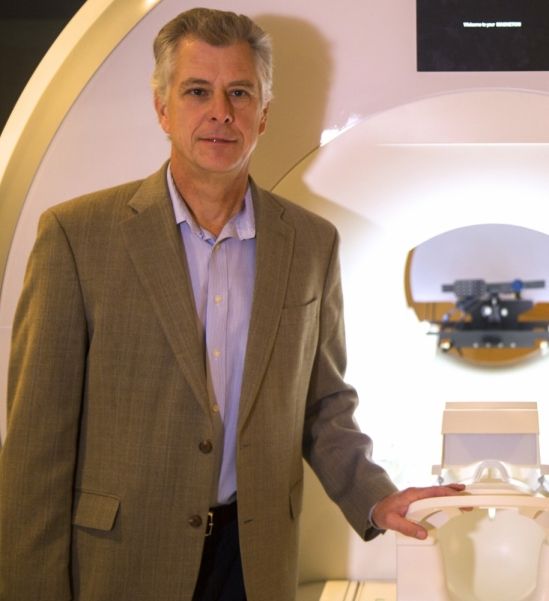Scott Grafton’s Team Receives Additional $500,000 From the NFL-GE Head Health Challenge I

ICB co-director and director of UCSB’s Brain Imaging Center Scott Grafton and his team were named as one of six final winners of the $10 million Head Health Challenge I, receiving an additional $500,000 grant to pursue their work in developing methods of diagnosis and prognosis of mild traumatic brain injury. Their initial award of $300,000 was announced in January of last year as one of 16 first-round winners who were chosen from more than 400 entries from 27 countries.
The grant was born out of the Head Health Initiative: a partnership consisting of many parties, including the U.S. Military, National Collegiate Athletic Association (NCAA) and Under Armor, but with leading sponsorships coming from General Electric (GE) and the National Football League (NFL). The goal of Head Health Challenge I is to improve the safety of athletes, members of the military and society overall.
“The competition for these awards has been fierce, so I was delighted when I learned we were one of the finalists,” said Grafton. “I have benefited from a remarkably creative and productive team that has put a lot into this project.”
In collaboration with the Department of Computer Science at UCSB, Grafton and his team are developing statistical methods to detect damage to the deep connections in the brains of patients who have sustained mild head injuries. “Mild concussions are not major traumatic events… most people are better within a week and back to themselves, but about one in 10 people are not. That’s who we’re interested in,” said Grafton. Recent breakthroughs in both MRI scanning and data analysis make it possible to detect subtle brain changes in individual patients after mild concussions. This approach will be tested with clinical data from collaborators using a variety of MRI scanners.
“Our goal is to develop a really sophisticated platform that provides a robust MRI toolkit for identifying brain abnormalities associated with mild brain trauma,” Grafton said. “In order to do that, we will be analyzing scans from 1,200 healthy people who are part of the Human Connectome Project so that we have a rich comparison group to test with our approach.”
“We are truly impressed by the quality of the work and the measurable progress being made by these winning organizations,” said Alan Gilbert, director of health policy, government and community strategy for GE healthymagination, the company’s commitment to invest in innovations that bring better health to more people. “There are a number of breakthrough ideas that are advancing our understanding of the brain and not only have applications on the playing field but also extend to neurodegenerative diseases such as ALS, Parkinson’s and Alzheimer’s.”
